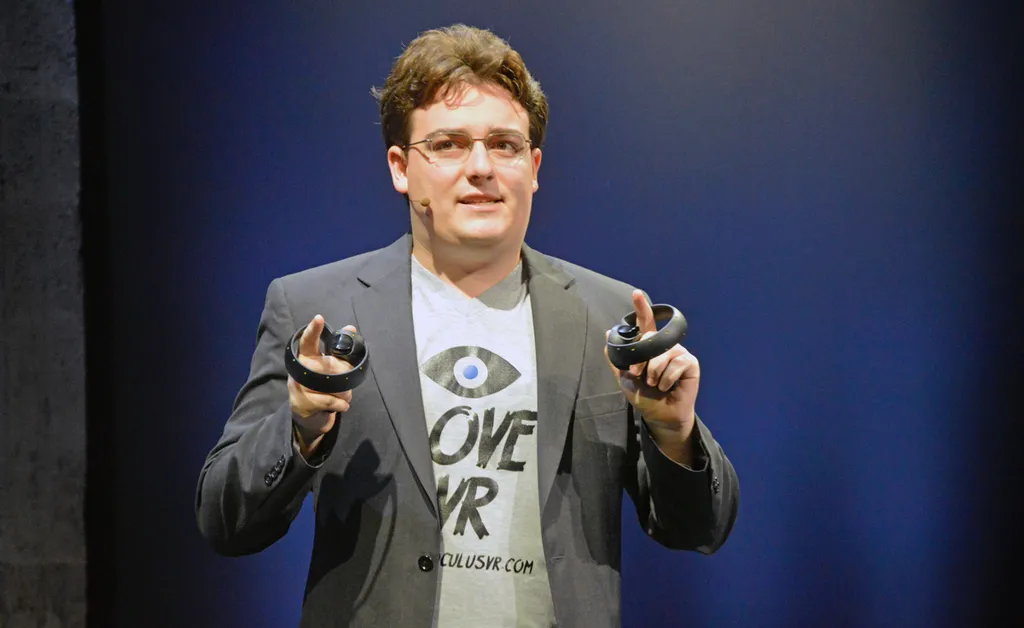What does the inventor of the Oculus Rift think about its newest model, Oculus Rift S?
Well, he says can’t use it.
In a blog posted this weekend, Palmer Luckey, who left Oculus in 2017, spoke out about the new device. He reasoned that a lot of the new features being put into the kit were good ones. Rift S switches out the original Rift’s external sensor-based tracking system for an inside-out solution, for example. But, ultimately, Luckey’s post is concerned with one major change: the loss of mechanical IPD adjustment.
IPD adjust allows users to tweak the position of a headset’s optics to better suit their eyes. IPD specifically refers to the distance between a user’s eyes, and different sizes have different requirements for comfortable VR. In Rift S, Oculus is switching out the slider on the bottom of the original Rift for a software-based solution. When we spoke to Oculus about the change at GDC last week the company admitted this solution wouldn’t be perfect for everyone. It appears Luckey is one of those people.
The Rift inventor says that his IPD is just under 70mm and “slightly skewed to the right side”. On the original Rift, which was designed to be compatible with the “5th to 95th percentile” of people, this wasn’t a problem. But Luckey says it will be on the Oculus Rift S, which features the same optics and IPD solution as Oculus Go. Luckey also says he can’t use that headset.
Cinderella’s Shoe
“Everyone who fits Cinderella’s shoe will get a perfect experience, anyone close will deal with minor eyestrain problems that impact their perception of VR at a mostly subconscious level,” Luckey wrote. “Everyone else is screwed, including me.”
So what would Luckey have preferred? He presented several possible alternatives but his favorite was offering different versions of Rift S tailored for different IPD sizes. “Rift S should have done this,” he said. “The logistical overhead of managing a handful of different SKUs with slightly different plastic pieces holding the lenses at slightly different distances would have allowed Rift S to keep costs low and expand the addressable market for VR without cutting out new and old customers alike.”
But, perhaps more importantly, Luckey expressed frustration with the lack of alternatives Rift S presented. Indeed, Rift S is fully replacing the original Rift so anyone with an incompatible IPD will be, in Luckey’s words, “locked out” of the Oculus ecosystem in the future. The original Rift is now largely sold out online. If you do own a Rift already, though, Oculus says it will be supported for the foreseeable future.
“I spent much of my later tenure at Oculus working on supporting headsets from other vendors, in part to avoid this type of situation,” Luckey wrote. “As things stand, I find myself shunned by an ecosystem I spent most of my adult life helping to create.”
Rift S launches this spring for $399. Will you be picking up the handset or are IPD concerns holding you back?


























